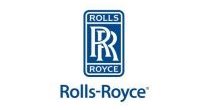"The illiterate of the 21st Century will not be those who cannot read and write, but those who cannot learn, unlearn, and relearn."
Diverse Job Roles, Diverse Companies and Diverse Industries










Learn to Stay Relevant and Drive Your Growth
The Ever-Evolving Professional Landscape
Many jobs and skills become obsolete due to technological advancements and automation, while new ones emerge continually. Long gone are those days when you survived your entire career with a few sets of skills.
Navigating This Fast-Changing Environment
With the half-life of skills under five years and non-linear career paths increasingly becoming the new normal, it's crucial than ever to embrace lifelong skilling and remain more versatile, adaptable, and collaborative.
Developing a Unique Professional Identity
Developing a professional identity provides direction, a sense of purpose and motivation for lifelong skilling. Your professional identity is who you are in your work and how others perceive you with your skills, experience, and values.
Identifying and Stacking the Right Skills Creatively
Everyone is unique with their own strengths. Develop your professional identity by identifying the right skills that align with your unique strengths, passions, and career goals, and creatively stacking them to remain relevant.
Develop a Unique Professional Identity
With industry needs consistently evolving, how do you identify the right skills, not random skills, required for your career, and stack them creatively into a T-shaped skill set to shape your dynamic professional identity and stand out?

Observe How Skills are Applied
Explore diverse job roles in a simulated workplace scenario and observe how various skills are applied practically through real-world interactive use cases.
1
Identify and Stack the Right Skills
Identify and stack the right complementary skills that would add value to your desired career with the help of a mentor*.
*A small mentor fee is applicable
2
Develop a Professional Identity
Leverage curated resources* and start learning the chosen skills to develop a unique professional identity and stand out.
*Fee applicable for paid courses
3Note: Identifying complementary skills works well if you are already aware of your core skills. To identify the core skills, explore the job role you want to pursue and attain proficient literacy in those skills.
Skill Stacking
Skill stacking is the art of combining diverse skills, both core and complementary, to create a unique T-shaped skill set and shape your professional identity.
The T-shaped skill set represents core skills with proficient literacy in a specific field (denoted by the vertical bar of the T), and complementary and transferable skills with basic or functional literacy in adjacent or related fields (denoted by the horizontal bar of the T).
A Few Examples
A software engineer who not only codes proficiently but also understands user experience (UX) principles and visual design basics.
A musician who is also a software engineer develops an AI-driven music production app.
A great writer who understands psychology → Creates content that persuades and sells.
A restaurant manager who develops financial literacy can make stronger strategic decisions.

Why Employers Look for a T-Shaped Skill Set
Individuals with a T-shaped skill set possess an interdisciplinary background and can see the big picture, approaching problems from various perspectives.
This fosters creativity and collaboration, making them better equipped to navigate complex projects that require knowledge from multiple domains. Below are a few traits that employers value in them.
Shadowing
Experience
Improved
Self-Awareness
Industry
Knowledge
Informed
Skilling Decisions
Constant Touch with the Industry
By being part of our Truly Responsible community, you'll stay in constant touch with the industry, keeping you abreast of evolving trends and dynamics.
Having explored at least one job role in the last three months makes you eligible to access webinars, workshops, podcasts, and fireside chats conducted by industry experts for your professional development.
This community prioritises the growth of its members, both personally and professionally. This commitment fosters a supportive environment where individuals can enhance their skills, knowledge, and overall well-being, ultimately contributing to a stronger and more capable community.

You are Unique
Everyone is unique with their own strengths and talents.






